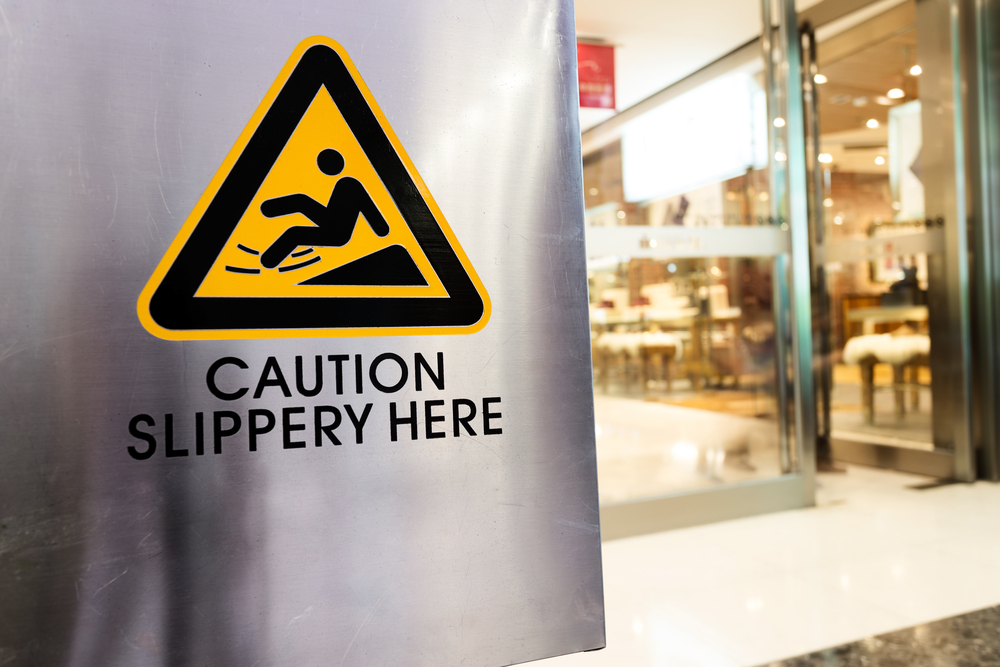Slip and Fall Lawyer
Video footage of “Black Friday” sales often features scenes of shoppers tripping and falling all over one another. But, with this notable exception, slip and fall and trip and fall incidents that occur while patrons are shopping are otherwise rarely covered by the media. Even though the prevalence of these injurious circumstances is rarely discussed openly in American society, such incidents occur with alarming frequency. Perhaps because these situations are so rarely discussed, shoppers who are hurt after falling are often unaware that they have rights and options available to them under the law.
The Rights of Slip and Fall Injury Victims
Slip and fall and trip and fall incidents are governed by an area of civil law known as “premises liability.” Special standards apply to this area of law. Unlike traditional personal injury lawsuits, the law is not simply concerned with whether the property owner/manager behaved in ways that were negligent, reckless, or intentionally dangerous. As an experienced slip and fall lawyer – including those who practice at Wieand Law Firm, LLC – can confirm, property owners and managers are held to highly specific standards dictated by state law.
Generally speaking, a slip and fall or trip and fall lawsuit can be pursued successfully if the injury victim can prove that the property owner or manager either knew or should have known of the dangerous condition that caused the fall and failed to take proper steps to remedy that defect. With that said, it is important to clarify the exact wording of your state’s premises liability laws before committing to either action or inaction in re: seeking compensation for the harm that you have suffered.
Legal Options for Slip and Fall Injury Victims
If you have been injured as a result of a slip and fall or trip and fall incident while you were visiting a retail establishment, it is important that you explore your legal options with the assistance of a personal injury attorney. Not all personal injury attorneys practice premises liability law, so it is important to schedule a consultation with one who has extensive experience with this area of civil law.
Once you understand how the law may apply to your situation specifically, you’ll be empowered to make an informed decision about whether to seek compensation from the retail owner or not. Whatever you decide, exploring your legal options will help to grant you the peace of mind that usually accompanies knowing that you have done all you could to make the most informed decisions possible.

